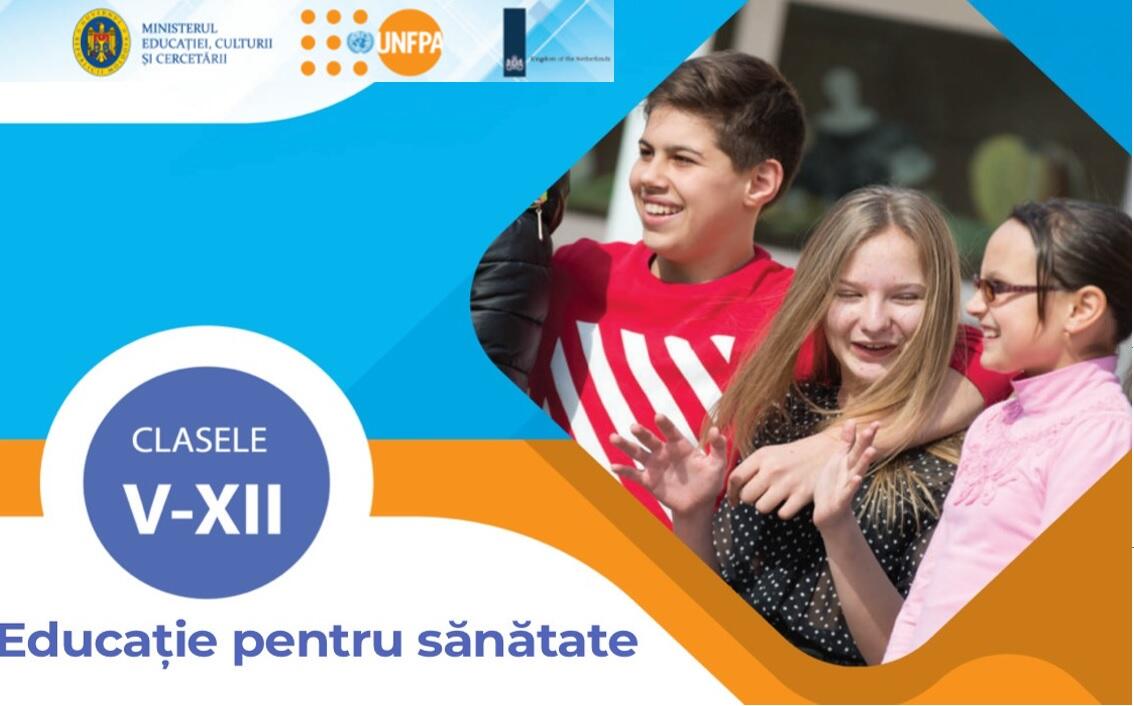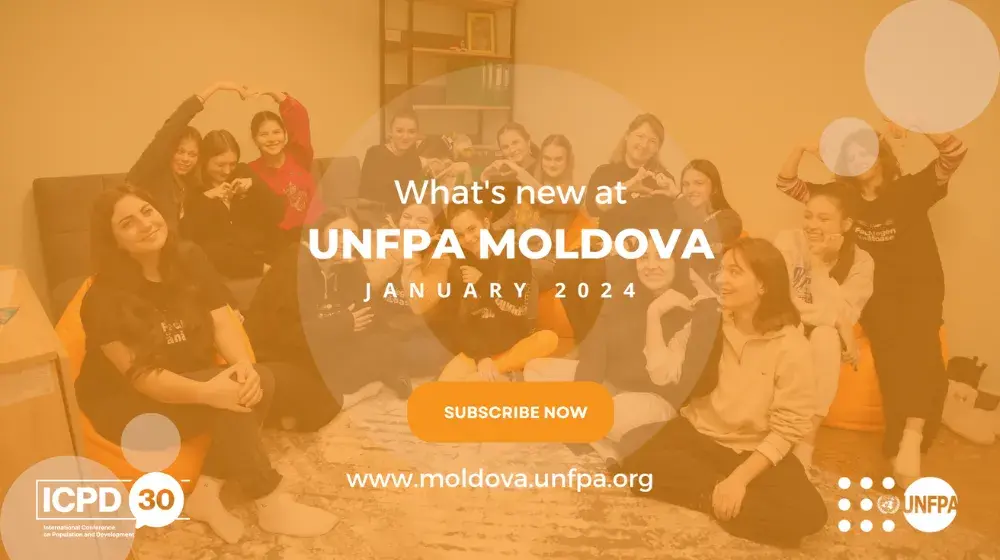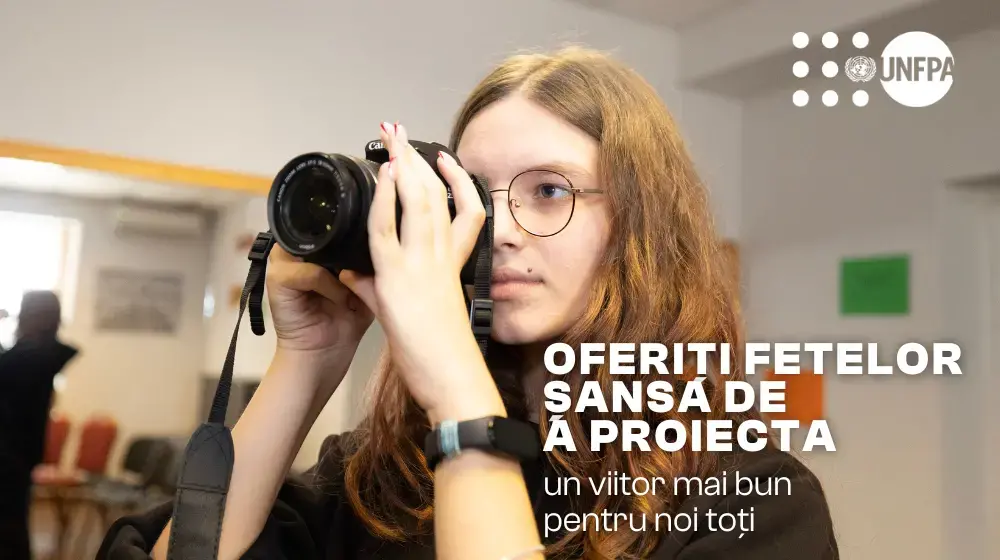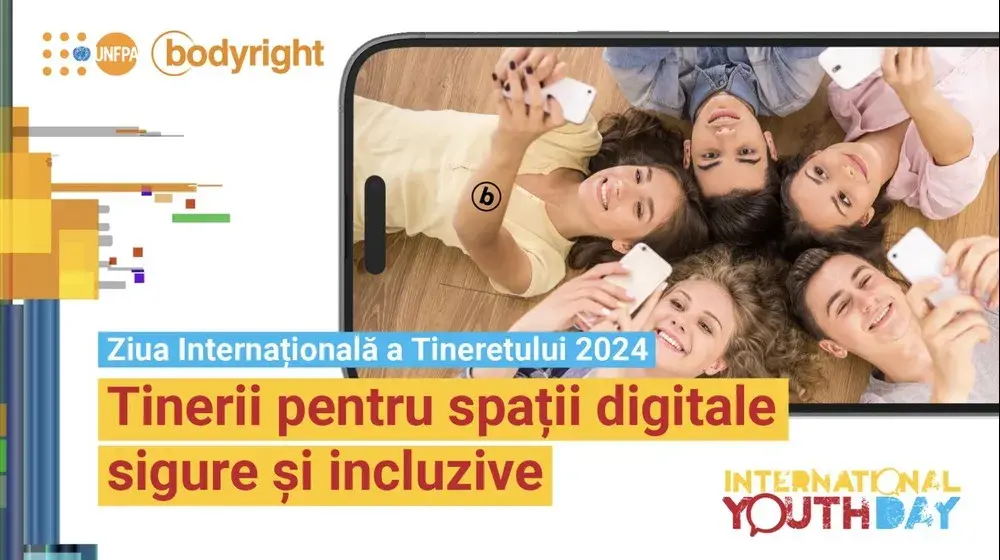All the materials of the “Health Education” course are available on the studii.md and educatieonline.md platforms, as well as on the Ministry of Education, Culture and Research (MECR) website. The textbooks and teaching materials serve as information support for teachers and students, as well as for parents.
The MECR and the United Nations Population Fund (UNFPA Moldova) supports students' access to quality health education in middle and high school, as well as in extracurricular activities. Thus, over the past few years, MECR and UNFPA have modernized the curriculum for the “Health Education” school course, trained teachers, developed interactive teaching materials and promoted healthy lifestyles in communities.
The “Health Education” course was introduced in Moldovan schools back in 2015, for grades I-XII, and is actually the only one that complexly addresses issues related to health and safe development of adolescents. It is an optional course, annually being selected by about 10% of teenage students. At the moment, “Health Education” addresses topics specific to adolescent development by applying interactive and digital learning methods such as role-playing games, quizzes (What? Where? When?), visits to youth institutions, community projects and many other interesting education activities.
For teachers, a special teaching support for grades 5-12 is now available in electronic format. It contains the main topics and possible lesson plan options, tasks and exercises to do in class or to be assigned as homework. In the coming months, the teaching support will also be available in Russian.
Also, in partnership with Educational Center Pro Didactica an interactive electronic textbook for grades 7-9 was also developed, which facilitates access to health education during distance/online learning. The textbook is available on the edusanatate.prodidactica.md website contains video materials, tasks and tests, exercises and lectures, which can be studied independently or in class. Structured on specific topics, it can also be used for other courses that include similar subjects, for example “Personal Development”, “Biology”.
The health education program answers the major questions of students about physical, mental health and social well-being of a person: about the features of the human body, stages of development, personal hygiene, psychological and reproductive health, good nutrition, physical activity and recreation. It also tackles issues such as health, the environment, problems of violence in the family and society. All this helps children and adolescents to better understand the changes that are happening to them and make the right decisions in life.





